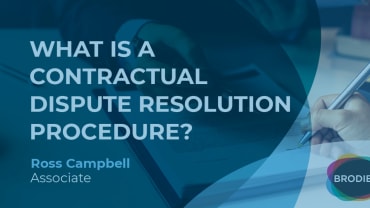Have you ever wished you could have a reasonable conversation with your ex-spouse or partner to talk about the financial matters arising from your separation, the arrangements for any children of your relationship, or both of these things? If so then family mediation could be for you.
1. What is family mediation?
Family Law mediation is a process which allows you to have a direct conversation under the guidance of a trained family law meditator. The mediator is a highly skilled family lawyer whose position is neutral and who will support your discussions.
The mediator is impartial and will not take sides but can help to guide discussions and keep dialogue respectful and focused. Their aim is to assist you to explore all options for resolving the issues in dispute so that you have the best chance of reaching agreement. A mediator can help you to explore all of the issues arising from the breakdown of your relationship or can deal with one very narrow point e.g. whether a child should be permitted to go on holiday.
As well as covering what family mediation is, it is important to state what family mediation isn’t. Family mediation is not marriage guidance. The purpose of family mediation is not to fix issues in your relationship with a view to that relationship continuing. The focus is very much on resolving the issues in dispute to allow you to live separate lives.
2. How does family mediation work?
Family mediation works initially by your mediator meeting with both you and your ex-spouse or partner separately. These intake sessions (as they are called) allow you to each to explore the matters which are of concern to you before mediation with your partner or spouse begins. The mediator will use this time to find out more about your situation and whether there are any reasons why mediation isn’t right for you.
If you want to mediate about financial issues you will be asked to provide details about these in advance of your intake meeting. Your mediator will also use this meeting to go through the terms of the mediation agreement. This document sets out the rules for how the family mediation will work, such as there being respectful discussion at all times and the requirement for confidentiality.
Once you have both had intake meetings, a joint session will be arranged when you will meet with the mediator together. An agenda will be agreed in advance of the meeting to keep discussions on track and the mediator will work with you both to ensure that you both have the opportunity speak and to have your voice heard . The mediator will help focus the discussions and ensure that all views are considered.
You are both entitled and encouraged to engage your own solicitor and to seek their advice while mediation is ongoing . He or she will be able to provide you with specific legal advice. If you manage to agree matters at family mediation, your solicitor will then be able to put together a legally binding agreement to reflect what you have agreed.
3. How long does a mediation take?
There are no set rules about how long a mediation will take. At the end of each joint session, another session can be arranged if both parties wish to participate. It is a voluntary process and either party can decide that they don't wish to continue with the mediation at any time, as can the mediator if they think it unlikely that further progress can be made. We try to keep each session to around 90 minutes as we have established that mediation sessions which last longer than that tend to end up being unproductive. Meetings can be arranged weekly or less frequently if there is information which needs to be located or if other commitments make meeting more often impossible. A convenient time for everyone involved will be found.
Sometimes agreement is reached at mediation and then at a later date something changes and a further session is required. We are always happy to mediate again if circumstances change and agreements need to be reviewed .
4. How do I start and book family mediation?
If you are ready to take the next step and wish to embark on mediation, the first step is to raise this with your ex-partner or spouse. As mediation is voluntary, it cannot proceed without their agreement to attend. If they show some enthusiasm, please get in touch. We have a number of solicitors who are accredited as Family Mediators by the Law Society of Scotland across our offices and throughout Scotland .
5. How much does family mediation cost?
The cost of family mediation will mostly depend on the complexity of the issue being mediated and the willingness of the couple to approach matters constructively. A consensus can sometimes be reached quickly at mediation (within one or two sessions). The benefit of family mediation is that the costs are transparent and you are directly involved in the vast majority of the work- the meetings themselves. Family mediation costs will often be split between the couple however you can choose to split those costs equally or in any other proportions.
Our mediators charge on an hourly basis depending on the experience level of the mediator. In some cases we might recommend that two of our mediators "co-mediate". In that scenario they would work on a blended rate. Full details of what the hourly rates will be for family mediation are available in our business terms and conditions which will be sent to both parties prior to any work being carried out.
Contributor
Legal Director












